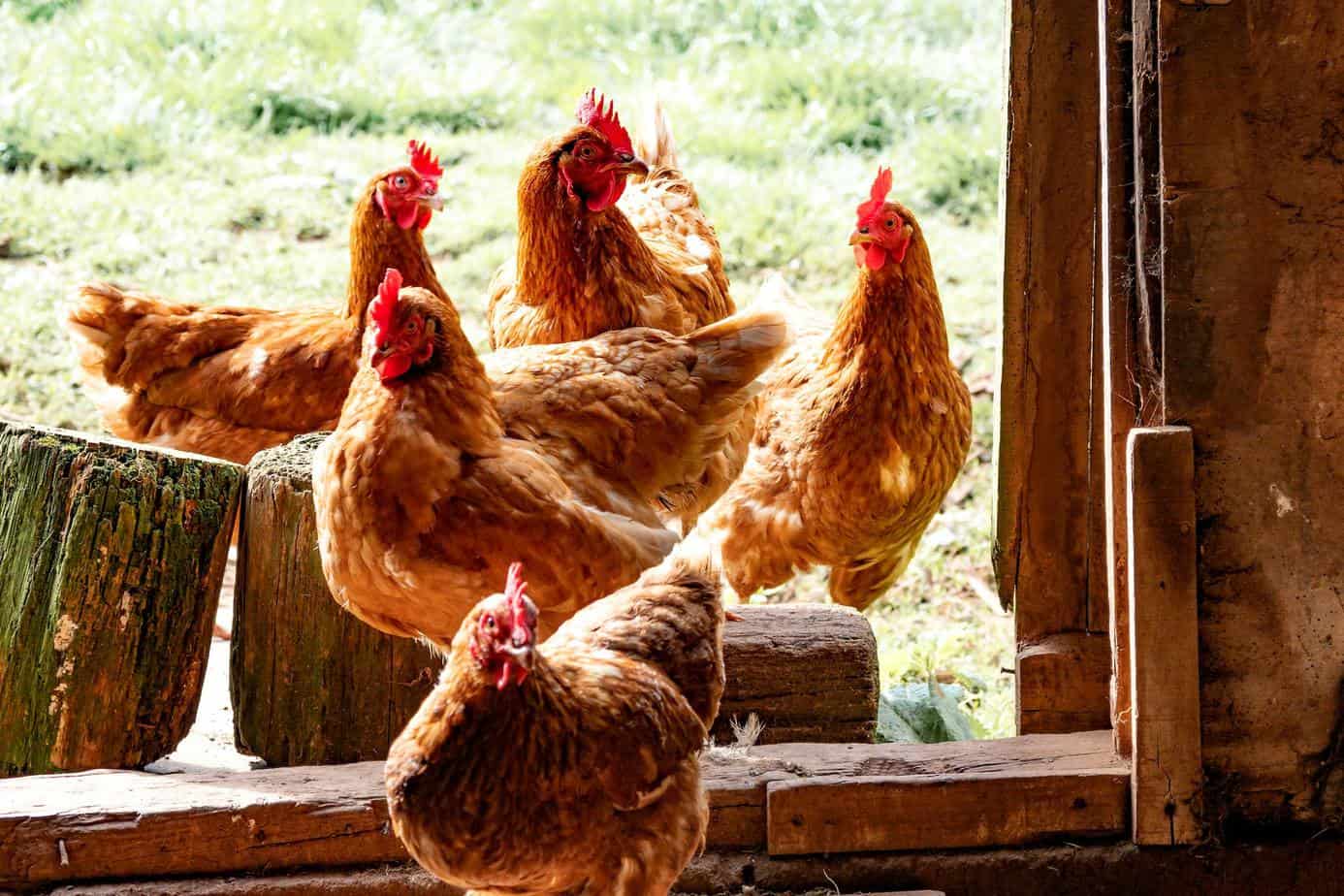Few moments on the homestead are as wholesome and heartwarming as releasing rescue animals out into their new habitat. Rescue chickens, in particular, seem to love this experience – never have I heard so much excited clucking! But before this magical moment occurs, you have to know where to get rescue chickens. In this post, I outline the process for rescuing chickens, hint at some of the costs, and tell you where to find chickens to adopt.
How Do You Rescue Chickens?
The process for finding rescue chickens will vary a lot depending on where you get them. On the one hand, some charities have strict criteria and guidelines. On the other, your friend down the road will not. But there is some advice on the process that should apply no matter where you get them. Prepare yourself for these aspects in advance of commencing your chicken search! Here are my tips:
1. Have proof of your residence, as well as the hens’ residence!
Many chicken charities do their due diligence before they allow people to adopt. And this is a good thing! As part of the application process, be prepared to prove the suitability of your residency. You might need to produce documents proving land ownership. Or you might need a copy of your lease that states you can raise animals there. Think ahead and try to predict what they might ask for. It’s a great idea to take pictures of your homestead, too. Make sure to get images of the intended chicken housing!
2. Make sure you know how much it costs to care for chickens properly.
During the adoption process, you might get asked whether you know roughly how much it costs to care for chickens. It’s worth having a rough number in your mind here. The charities want to make sure that you understand the financial implications of chicken ownership. Sure, chickens don’t cost a lot to house and feed relative to other animals. But they still need expensive medicine from the vet from time to time. Plus, rescue chickens are likely to have more health problems than other hens. This in and of itself will entail some expense, so be prepared to be asked about it.
3. Be open to advice and make it clear you’re willing to learn about chicken care.
People who work at or volunteer with rescue chicken charities tend to be very knowledgeable about these beautiful birds. While they don’t necessarily expect you to be a chicken expert, they do want to check you have basic knowledge of how to care for hens. More importantly, they want to be assured that you’re willing to take advice and that you’re willing to learn. On one rescue occasion, the adoption folks bombarded me with advice about chicken care. Much of the advice I already knew about. But I still listened carefully. Moreover, I made it clear that I was ultimately interested in the hens getting the best care. Be open to ideas and don’t argue with the rescue charity. Their priority is the hens’ welfare, and that’s yours too, remember.
How Much Does It Cost to Adopt a Chicken?
Again, this will vary considerably depending on where you get them.
Some hen charities are relatively well-funded and will give away chickens for free to a good home (particularly if the hens are older and are coming to the end of their laying life). Most, however, request that you make a donation. I bought my Mum (yes, “Mum” – a reminder that I’m a strange Old Englander in New England!) six rescue hens for £30 (about $40) for her birthday one year. I’ve seen other rescues asking just a few dollars per hen, and more still requesting over $10 per hen.
It really just depends on the charity and how much they put into the rescue process before the hens end up with you. If a charity is transporting a long way or offering health checks and vaccinations before rehoming, for example, expect to pay more. If the charity simply links people with hens to rehome with people wanting to adopt, then there might not be as much of a fee. Whatever you pay, if medicine is involved, make sure you ask for proof of vaccination, etc. so you can give that information to your vet if needed.
All that said, there are many places where you can get rescue chickens for free. If you’re rescuing from a local farm, rehoming from someone who can’t care for them, or taking on a few chicks from a friend, you likely aren’t going to be paying for them.
Where to Get Rescue Chickens for Adoption
1. Hen rescue charities
Registered hen charities are your best bet if you are new to rescuing hens. Not only will these wonderful people hook you up with some hens, but they will give you all the advice you need to get started. These charities often have partnerships with local farms and other rescue associations, and they can find large groups of hens that need rehoming urgently otherwise they may face culling. Working with one of these charities is an excellent way of doing your part to care for one of nature’s best providers!
To find a local rescue chicken charity, make sure to do general searches online as well as check for recommendations on social media. In the US at least, most chicken charities serve particular geographic reasons. There are few associations that are countrywide simply because of the logistical demands of relocating across thousands of miles (plus it’s awful for the chickens having to travel far!). Facebook has some very active groups of rescue chicken enthusiasts and you’re bound to find recommendations for charities if you ask people on there.
2. Online groups
Social media has opened up a whole new world of homesteading, and there are plenty of chicken lovers out there! Many times you will find advertisements for rescue hens on one of those groups. You can also put out your own search post and ask people if they know of any hens to rescue. You might just be surprised at how many people happen to know someone trying to downsize their flock or offload a few chickens from a recent clutch. Be prepared to gets lots of advice from those groups, too!
3. Online forums
Another good source of rescue chickens are forum websites. These could be more generic forums like Craigslist (if you’re in the US) or specialist hen forums. Many people post on those forums either for the convenience (millions of people use websites like Craigslist) or because they’re hoping to find a group of like-minded people. Whatever forum you ultimately go with, try to do some homework on the person posting. Unfortunately, there are scams on websites like this – even when involving rescue animals! Someone I know was charged over $350 for vets bills that turned out never to have been paid. I’ve also heard of people being asked to make donations to rescue charities that don’t even exist. Simply asking the person for photo ID can be a good way of separating the dodgy people from the serious rehomers. When collecting hens from a stranger, always take someone else with you.
4. Chicken farms
With more and more people being unwilling to tolerate the mass slaughter of healthy animals, many chicken farms have implemented more humane policies for dealing with hens at the ‘end’ of their laying career. I put ‘end’ in quotation marks like that because as we all know, most rescue chickens get over the trauma of the move and then begin laying eggs for many years to come. My Mum has had some hens that have laid for years upon years after their ‘laying prime’ and I can personally vouch for how delicious their eggs are! Try reaching out to farms and asking whether they do any rehoming events throughout the year. Some farms even advertise these events on social media or their own websites, so it’s worth keeping an eye out.
5. Animal/bird sanctuaries
If you are interested in having chickens as pets and aren’t too concerned about them laying on a regular basis, check out animal sanctuaries as well. Some sanctuaries help older birds who may be laying irregularly or not at all. These birds still make excellent pets and they can still do many other jobs on the homestead. In addition to eggs and meat (although I couldn’t stomach the idea of eating one of my hens!), chickens can be great for:
- fertilizing patches of land for grass growing or vegetable planting at a later date
- pest control (it’s amazing what chickens will catch right out of the air…)
- natural waste processors (chickens love food scraps, although there are plenty of things you shouldn’t feed them, so be careful)
Where Can I Take My Chickens to Be Rehomed?
If you are reading this post looking for ideas about where to rehome your chickens, I would highly recommend you reach out to a local rescue chicken charity. People need to rehome their hens for all kinds of reasons, so there will be no judgement from the charity personnel when you bring your hens in. Believe me, they’re just grateful to see people being responsible about rehoming! So many chickens end up abandoned or mistreated, so it’s always best to reach out to the professionals.


